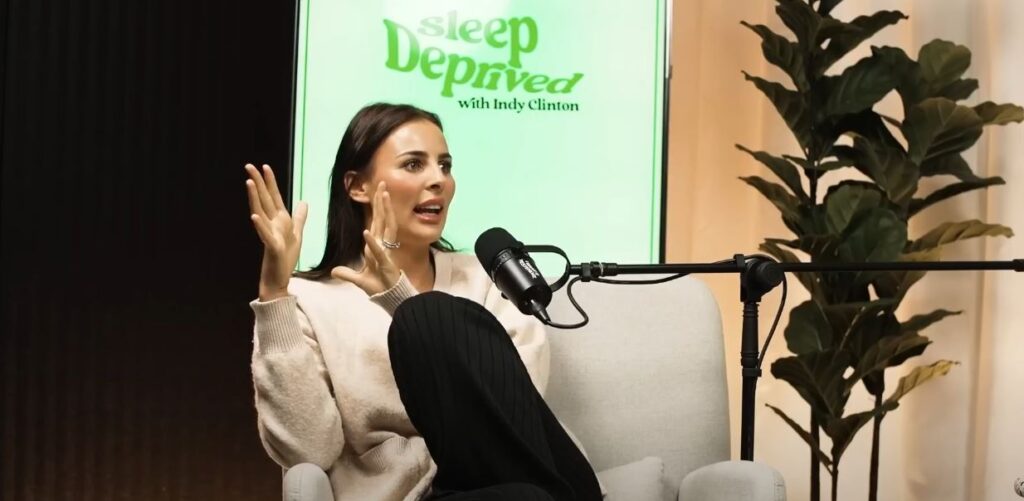
A new creative ecosystem comes alive somewhere between 1 a.m. and sunrise, when most city lights start to go out. Digital personalities jschlatt, apandah, Aztrosist, and Mikasacus host the Sleep Deprived Podcast, which has remarkably turned insomnia into a strangely productive activity. With gaming setups and energy drinks all around them, they record in dimly lit rooms while laughing through delirium and transforming fatigue into amusement. Their exuberance is both disorganized and reassuring, akin to an endless caffeine-fueled sleepover.
There’s a reason for this late-night recording habit. It reflects a burgeoning cultural trend: artists overcoming exhaustion in search of connection. The Sleep Deprived Podcast started out as a friendly conversation about airplanes and other ridiculous topics in 2017, but it quickly grew into a streaming behemoth with a devoted following. With its uncensored humor and unplanned ideas, each episode appeals to the restlessness that millions of listeners experience on a daily basis.
| Aspect | Details |
|---|---|
| Concept | The cultural and creative rise of late-night podcasting |
| Key Example | Sleep Deprived Podcast (featuring jschlatt, apandah, Aztrosist, Mikasacus) |
| Supporting Voices | Arianna Huffington, Marie Forleo, ZOE Nutrition Team |
| Industry Platforms | Spotify, YouTube, Patreon, Apple Podcasts, Twitch |
| Themes | Insomnia, creativity, digital burnout, authenticity |
| Social Impact | Reflects modern work culture, connection during loneliness |
Among Gen Z creators on YouTube, Spotify, and Twitch, nighttime streaming has grown in importance. They view the evening as a creative space, when ideas flow more freely, filters relax, and dialogue feels genuine, rather than as a time when people should be off. This silent revolt against the strict 9–5 is tapped into by podcasts such as Sleep Deprived, The Midnight Project, and Insomnia FM. In The Sleep Revolution, Arianna Huffington pointed out that society used to exalt insomnia as evidence of productivity. It has now evolved into the actual content.
The night offers an unanticipated intimacy for creators. When there are no outside distractions, conversations become more open and vulnerable. Aztrosist remarks, “Nighttime feels honest,” referring to his unplanned outbursts that occasionally turn into meditations on anxiety and art. Because of their honesty, the listeners have become surprisingly devoted, finding solace in the unvarnished thoughts.
However, there is a paradox hidden beneath the chaos and humor. These artists take advantage of insomnia, but they also represent the weariness of an online-savvy generation. The lines between personal time and creative work have become much more hazy with the rise of 24/7 platforms like YouTube and Twitch. You get more attention the more you produce, and you make more the less you sleep. As the members of Sleep Deprived frequently quip, “We’re tired, but we’re trending,” it’s an exciting and exhausting cycle.
Arianna Huffington’s 2007 collapse from exhaustion, which served as the inspiration for The Sleep Revolution, is reminiscent of this tension. She referred to sleep deprivation as a “global dysfunction,” cautioning that the exaltation of perpetual activity may undermine both creativity and mental health. Ironically, today’s restless artists appear to have accepted that dysfunction as part of who they are, transforming their own weariness into discourse and art.
However, resilience is also present here. For a lot of creators, these sessions are about being present rather than just staying awake. Fans characterize Sleep Deprivation as more than just entertainment; it’s a place for community. During a live chat at three in the morning, one listener said, “It feels like a call with friends.” That sentiment encapsulates the authenticity of the movement, which is what makes it so powerful. Unscripted fatigue feels refreshingly human in a time of refined influencer branding.
Comparisons to classic late-night television, where programs like The Tonight Show once used comedy and music to celebrate insomnia, have also been made to this trend. The audience has grown since the stage was moved online. The new hosts of digital night talk are podcasters, who combine sincerity and absurdity, vulnerability and meme culture. Their influence transcends national boundaries, linguistic barriers, and time zones, demonstrating how technology alters our shared perception of time and relaxation.
ZOE Nutrition researchers note that sleep deprivation impacts physical health, including blood sugar levels and emotional control, in addition to creativity. Paradoxically, however, the popularity of “sleep content”—such as guided meditations, ASMR streams, and podcasts—indicates a desire for peace. It’s a startling irony that people who don’t get much sleep are making content to assist others in doing so. It seems like the inability to sleep has turned into a business.
Consistency is more valued in the digital economy than wellness. Creators make money from extended episodes, behind-the-scenes conversations, or live Q&A sessions with their most loyal fans on websites like Patreon. The “therapy” and “reaction” sessions available on Sleep Deprived’s $5 and $15 tiers are meta experiments that conflate comedy and therapy. They have created a highly effective economy of exhaustion through these formats, one that both amuses and captures the cultural price of unending engagement.
The Sleep Deprived Podcast’s tone is still remarkably upbeat, though. There’s camaraderie beneath the burnout jokes. There is an implicit understanding that sharing fatigue makes it easier to handle. The laughter serves as solace and evidence that connection persists even in the midst of creative chaos. That attitude is similar to what Arianna Huffington thought would be the remedy for burnout: rediscovering empathy via humanity.
Marie Forleo and other well-known individuals have joined the discussion, encouraging viewers to “sleep their way to a better life.” Her interviews on the Sleep Revolution theme highlight how getting enough sleep helps one regain focus and clarity of thought. In a startling turn of events, however, the same generation that is following her advice is also promoting the very sleep-deprived content creation culture that she cautions against. Our digital moment is characterized by this contradiction: the desire for stillness while streaming through exhaustion.
Entertainment itself has changed as a result of this duality. Late-night artists now strive for presence rather than perfection. Their audiences, who frequently listen through headphones in low light, value camaraderie over polish. Parasocial relationships have been redefined by the intimacy of these hours, which makes them especially potent emotional experiences for people who feel alone.
The allure of the all-night podcast revolution may lie in the fact that it provides a space where fatigue can feel purposeful. The ramblings, the laughter, and the silence in between jokes serve as a reminder to listeners that, despite its challenges, insomnia is a common condition. It turns isolation into community.
